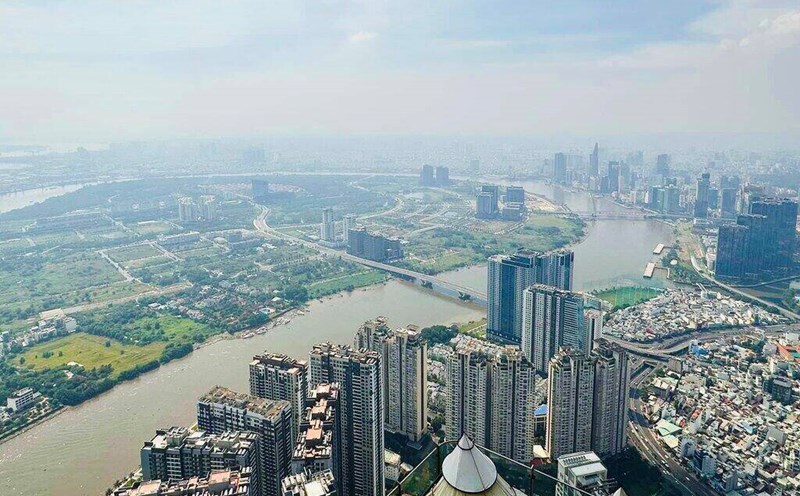Mr. Nguyen Tuan Duong (33 years old), currently the head of sales department at a technology company in Hanoi. Although his income is about 32 - 35 million VND/month, owning an apartment in the capital is not as easy as he expected.
Two years ago, I missed a few opportunities to buy a house for about 2.2 billion VND because I wanted to save more capital to avoid having to borrow a lot from the bank. Now looking back, in those projects, the price has skyrocketed to more than 3 billion VND, while my income has almost not increased" - Mr. Duong shared.
At present, according to him, apartments with prices from 2-3 billion VND are becoming increasingly rare, especially in the inner city or places with complete infrastructure. Most of the newly opened projects are in the high-end segment, priced from 60 - 80 million VND/m2, causing a 70m2 apartment to be stuck with 4 - 5 billion VND, far beyond the affordability of people with average incomes like him.
Ms. Tran Mai Linh - a worker living in Hanoi - and her husband have a total income of 40 million VND/month. However, after 3 years of saving and searching, the couple has not been able to own an apartment as desired. "We expect to find a 2-bedroom apartment, with an area of about 70m2, priced at about 2.5-3 billion VND. But the more I look at it, the more frustrated it is, because new projects are all in the high-end segment, with prices mostly from 4 billion VND or more, if I want to buy a house, I have to accept a huge loan payment. Some more affordable apartments are far from the center, the infrastructure is not yet synchronous" - Ms. Hang shared.
Recent research data from the Vietnam Association of Realtors (VARS) shows that in the first half of 2025, 60% of the supply of newly opened apartments will be products priced at over 80 million VND/m2. Some apartment projects in the provinces on the outskirts of Hanoi also have prices starting from 55 million VND/m2.
The current price is not only far beyond the affordability of low-income people but also beyond the reach of those in the upper middle-income group. According to feedback from real estate brokers who are members of VARS, many young customers, even with good incomes, at 40-50 million VND/month, do not "d like" to buy a house without financial support from their family.
The pressure to repay loans is too great, especially when interest rates "float" after a period of strong increases, becoming a significant psychological barrier for young people - those who focus on quality of life, living experience and flexibility in consumption rather than deciding to borrow long-term for decades to own a small apartment. It is forecasted that in the short term, apartment prices in Hanoi will continue to increase due to high input costs and investors' profit expectations continue to be high.
Ms. Do Thu Hang - Senior Director of Savills Hanoi Consulting and Research Department - shared that owning a house requires a complete knowledge base, and also requires time to accumulate finances. Especially for young people, when they have just graduated and graduated, most of them cannot have enough resources to buy a house immediately, so accumulating finances is inevitable.
Buyers can look to financial support packages. Using leverage helps shorten real estate ownership time, however, a reasonable financial plan is needed to ensure payment capacity.
Another strategy is to look for real estate in areas far from the center, where prices are more reasonable. This may require flexibility in traveling, but it is a viable solution for those with limited budgets. Not to mention, the strong development of Hanoi's transport infrastructure in the coming years will support the connectivity between Hanoi and neighboring areas to become more convenient.











